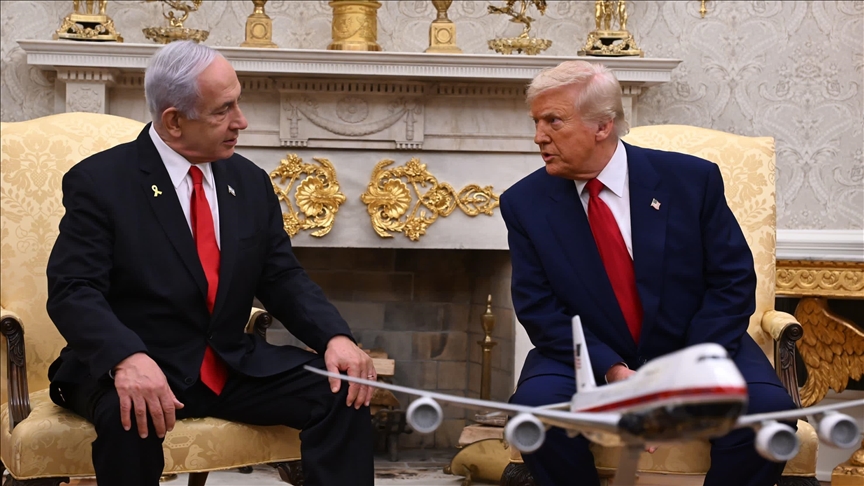USA President Donald Trump is ripping up the rulebook on trade that has been in place for more than 50 years.His latest round of sweeping tariffs, which came into force shortly after midnight on Wednesday, hits goods from some of America's biggest trading partners including China and the European Union with dramatic hikes in import duties.The president and his allies say the measures are necessary to restore America's manufacturing base, which they view as essential to national security.
But it remains a potentially seismic action, affecting more than $2tn worth of imports, which will push the overall effective tariff rate in the US to the highest level in more than a century.In the USA, key consumer goods could see huge price rises, including an estimated 33% for clothing, and analysts are warning of near-certain global economic damage as sales in America drop, trade shrinks and production abroad falls.
With the stock market reeling and political pressure in the USA starting to build, the White House has worked to soothe nerves by floating the possibility of trade talks, touting conversations that have already begun with Japan, Vietnam and South Korea.But Trump has signalled resistance to the kinds of exemptions he granted during his first term, and even if these talks are ultimately productive, country-by-country deal-making will no doubt take time.
The USA already appears set on a collision course with China, which was its third biggest supplier of imports last year.
The White House said on Tuesday that it was moving ahead with Trump's social media threat to add a further 50% levy on imports from China, on top of the 54% duties that had already been announced, unless Beijing agreed to withdraw its retaliation.Liu Pengyu, a spokesman for the Chinese embassy in Washington, declined to say if the two sides had spoken directly since the threat.But publicly, China has shown little willingness to back down, describing Trump's moves as "bullying" and warning that "intimidation, threat and blackmail are not the right way to engage with China".
"If the US decides not to care about the interests of the US itself, China and the rest of the world, and is determined to fight a tariff and trade war, China's response will continue to the end," he said in a statement.The rapid change has shaken USA businesses with decades of ties to China, which now find themselves paralysed and unsure how this escalating trade fight might end.He put out notice to his suppliers to halt any shipments to the US earlier this week, as the US announced it would hit goods from China with duties starting at 104%.
Speaking to Congress on Tuesday, Jamieson Greer, who leads the office of the US Trade Representative, declined to set a timeline for how quickly talks might progress.Shares in the USA resumed their downward slide on Tuesday, giving up early gains spurred by Trump comments about trade talks that the fight might see a quick resolution.The S&P 500 is now trading at its lowest level in more than a year, after seeing roughly 12% of its value wiped out since the announcement last Wednesday.
Stock markets from Japan to Germany have also been shaken, as investors assess the wider repercussions of the actions. In the UK, the FTSE 100 has dropped about 10%."What I'm really seeing is trepidation, uncertainty, a lot of questions, a lot of people wanting us to predict what will happen next," said Amy Magnus, director of compliance and customs affairs for Deringer, a Vermont-based firm that is one of America's top five customs brokers. "But I have entered into a world that I cannot predict."Erin Williamson, vice-president of US customs brokerage at GEODIS, a global supply chain operator, said on Tuesday afternoon, said that the uncertainty had prompted some of her firm's clients to simply put shipments on pause.
"One of the top ways that you can confirm that you're not putting your business at risk is really holding off until maybe the dust settles," she said.The uncertainty is raising the risks to the economy, said Ernie Tedeschi, director of economics of the Budget Lab at Yale, which is not predicting a recession in the USA, but still expects tariffs announced so far this year will cost the US 600,000 jobs and lead to a roughly $3,800 hit to purchasing power for the average household.
"A lot of the market turmoil we've seen is not about the substance of the economic damage of tariffs on their own. A lot of it is about the uncertainty," he said.
Madina Mammadova\\EDnews






